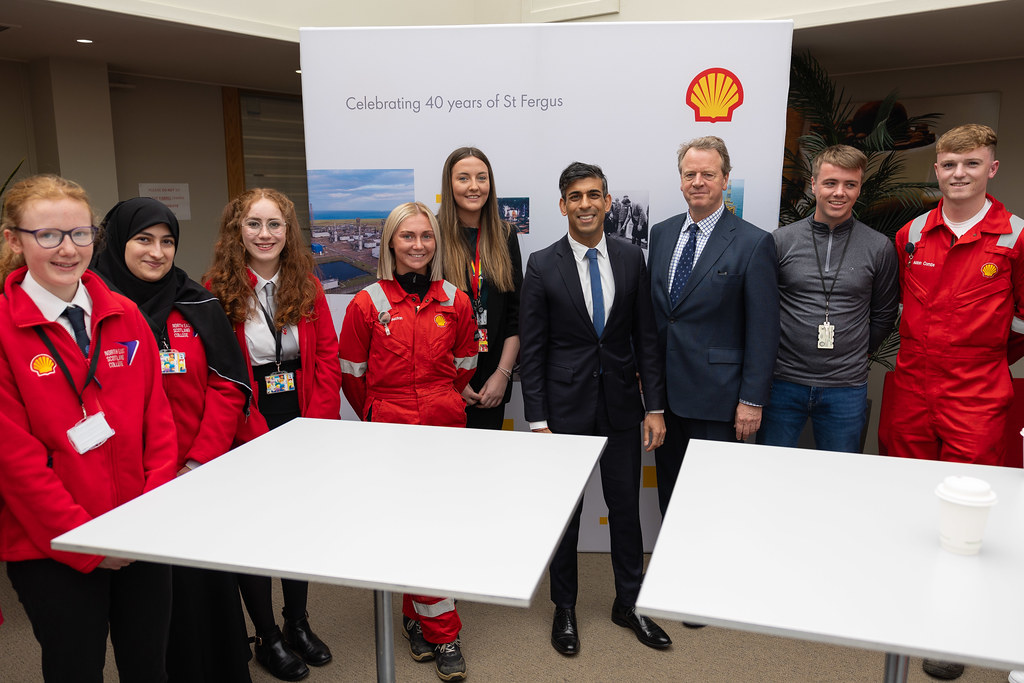Energy Security Secretary Grant Shapps is meeting with industry leaders to discuss the Government’s energy security strategy.
The Department for Energy Security and Net Zero (DESNZ) announced the news as part of a week of government promotion of its energy security policies, which have been criticised by environmental groups for relying heavily on more oil and gas extraction, with the announcement of more new licenses.
DESNZ said that Downing Street would be hosting a summit with leaders of the UK’s energy industry today, to discuss industry plans to invest “over £100 billion and create jobs around the country”.
Today, Energy Security Secretary @grantshapps is meeting with UK energy leaders to discuss:
— Department for Energy Security and Net Zero (@energygovuk) August 2, 2023
💷Multi-billion £ plans in low-carbon projects
👨🏭Investment in home-grown energy
⚖️New powers to protect UK energy supplies
Read more 👇 https://t.co/WCRzVrP9H7 pic.twitter.com/O9qApxLegJ
Shapps will meet with companies including EDF, Shell and BP, to discuss their plans to invest billions in “zero-carbon projects”. Shapps took to Twitter/X today to attack Labour, who he said wanted to ban UK oil and gas.
Shapps will “highlight decisions to invest in home-grown energy sources” DESNZ said, adding that the government would also highlight measures to protect fossil fuel infrastructure from “disruptive protests”, which were brought in under the controversial Public Order Act.
However, Shapps was questioned on Sky News about whether oil and gas extracted in the UK and sold on world markets would really increase the UK’s energy security.
‘How much gas that we produce in the UK is actually sold in the UK?’@JayneSeckerSky asks Energy Security Secretary @grantshapps about the UK’s gas production, following the government granting 100 new oil and gas licences off the Scottish coasthttps://t.co/MN45tfGyF1
— Sky News (@SkyNews) August 2, 2023
Sky 501 pic.twitter.com/VXFDrAi5Wq
Shapps said: “Energy industry leaders can see that this Government will back home-grown, secure energy – whether that’s renewables, our revival in nuclear, or our support for our vital oil and gas industry in the North Sea.”
The investments being announced by companies today include a promise from Shell UK to invest “£20-25 billion in the UK energy system over the next 10 years.” DESNZ has said that “more than 75% of this is intended for low and zero-carbon products and services.”
SSE plc plans to invest £18 billion up to 2027 in low carbon infrastructure, and a possible £40 billion in the next decade. National Grid will invest £16 billion in the 5 years to 2026, EDF plans to invest £13 billion to 2025, and RWE plans to invest up to £15 billion in clean energy infrastructure in the UK by 2030.
Shapps will also discuss progress on UK energy investment projects in carbon capture and storage, oil and gas, nuclear, and offshore wind. However, the news was criticised by some commentators for concentrating government support in the oil and gas sectors.
Oliver Bridges, head of energy data at NTT DATA UK&I, said: “The UK Government can’t reach Net Zero by itself. Full industry buy-in is vital to meet Net Zero targets, unlock innovation, and build the necessary infrastructure to future-proof our grid. As we prepare for the Energy Bill’s third reading in September, the UK Government must commit to a full course of investment in not just energy security – but the infrastructure that makes that possible. We’ll see how the smart meter roll-out, combined with a return to a more competitive market, leads to a new wave of innovation in the energy industry.”
Wind energy trade body RenewableUK also met with Grant Shapps today, with executive director of Policy Ana Musat reporting that: “the renewable energy sector welcomed the opportunity to meet with the Secretary of State to discuss the opportunities and challenges we face. There was widespread agreement of the need to improve the UK’s investment environment, as we’re facing very challenging economic conditions and strong international competition for supply chain, skills and investment.”
“We are all aware that prioritising the roll-out of cheap, homegrown renewable energy projects is essential to strengthen Britain’s energy security. Wind and solar generate power cheaper than any other new energy source, so the Government can improve investor confidence in this space by ensuring that the Contracts for Difference framework takes account of the economic pressures faced by the sector,” Musat added.






